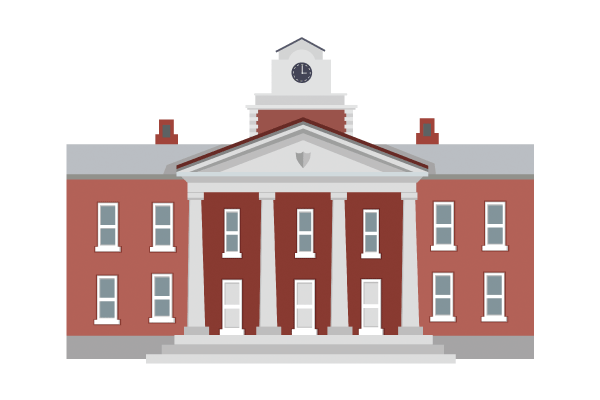Government Relations
APS Stands with International Students Studying in the United States
ICE policy changes draw fierce opposition from scientific community, are quickly reversed

This summer, proposed changes to U.S. immigration policies cast widespread uncertainty among international students in the country who had planned to take online courses this fall because of the COVID-19 pandemic. After fierce opposition from the scientific and academic communities, including APS, the government’s plans were quickly dropped.
On July 6, U.S. Immigration and Customs Enforcement (ICE) announced that it would end temporary exemptions to online learning requirements as part of the Student and Exchange Visitor Program. That move would have forced international students to take in-person classes at U.S. universities to remain in the country legally. APS wrote directly to ICE expressing strong opposition to the proposed change, emphasizing the ongoing threat of COVID-19 and the risk to students’ physical and mental health in forcing them to attend in-person classes.
The APS letter also referenced National Science Foundation data showing that between 2000 and 2017, more than 4,100 individuals on temporary visas received their PhD in psychology in the United States, highlighting the importance of international students to the advancement of global psychological science and to closing the country’s scientific talent gap. Other data show that science and engineering PhD students in the United States on temporary visas tend to stay at least 5 years after they obtain a degree, continuing to contribute their skills to the workforce.
APS also joined with the broader scientific community in signing on to two additional letters condemning the move. Some universities, including Harvard and the Massachusetts Institute of Technology, even sued the administration.
In response to the opposition, ICE dropped the planned changes to exemptions on July 14, only 8 days after they were announced—a positive outcome for advocates who organized and responded quickly to address the issue.
As the world continues to deal with the effects of COVID-19, fostering a strong scientific workforce in the United States and abroad has become more important than ever. Psychological scientists have much to contribute to our understanding of how behavior can mitigate the effects of COVID-19, and the global nature of the science will continue to be important for shaping best practices and policies moving forward.
References
Alvarez, P., Shoichet, A.E. (2020, July 7). International students may need to leave US if their universities transition to online-only learning. CNN. https://www.cnn.com/2020/07/06/politics/international-college-students-ice-online-learning/index.html
American Association for the Advancement of Science (2020, July 14). United States drops visa restriction on foreign students attending remote classes. Science. https://www.sciencemag.org/news/2020/07/us-drops-visa-restriction-foreign-students-attending-remote-classes?
CDC [@CDCgov]. (2020, July 16). As of July 14: In the last 7 days, #COVID19 cases increased nationally with 3 states each reporting more than 50,000 new cases. Twitter. https://twitter.com/CDCgov/status/1283732816421965824/photo/1
Fischer, K. (2020, July 8). As MIT and Harvard Sue, Colleges Scramble to Respond to New Federal Policy on International Students. The Chronicle of Higher Education. https://www.chronicle.com/article/As-MITHarvard-Sue/249142
National Science Board. (2019). The Skilled Technical Workforce: Crafting America’s Science & Engineering Enterprise. Retrieved from: https://www.nsf.gov/nsb/publications/2019/nsb201923.pdf
National Science Board. (2020). The State of U.S. Science and Engineering 2020. Retrieved from: https://ncses.nsf.gov/pubs/nsb20201/u-s-and-global-education
National Science Board. (2020). Higher Education in Science and Engineering. Retrieved from: https://ncses.nsf.gov/pubs/nsb20197/international-s-e-higher-education#tableCtr1554
U.S. Immigration and Customs Enforcement (2020, July 6). SEVP modifies temporary exemptions for nonimmigrant students taking online courses during fall 2020 semester. https://www.ice.gov/news/releases/sevp-modifies-temporary-exemptions-nonimmigrant-students-taking-online-courses-during





APS regularly opens certain online articles for discussion on our website. Effective February 2021, you must be a logged-in APS member to post comments. By posting a comment, you agree to our Community Guidelines and the display of your profile information, including your name and affiliation. Any opinions, findings, conclusions, or recommendations present in article comments are those of the writers and do not necessarily reflect the views of APS or the article’s author. For more information, please see our Community Guidelines.
Please login with your APS account to comment.